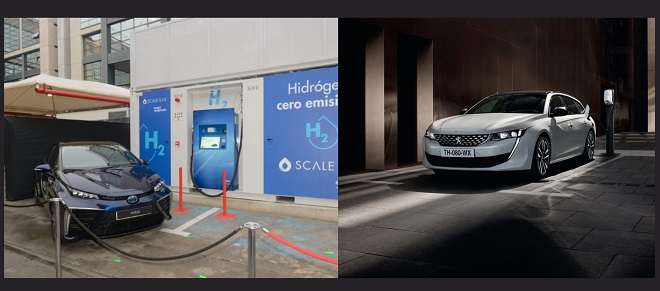We can only buy electric cars in the year 2035
There are barely 12 years to go before the deadline for passenger cars and vans with internal combustion engines to be registered in the European Union. CO2 is always released so any technology that emits carbon dioxide will become prohibited on January 1, 2035. Electric cars will have full priority.

The goal is to send a message to manufacturers: Europeans want to drive electric cars or zero emissions from 2035 or other technologies that do not contribute to global warming. Therefore, cars and vans that run on hydrogen, whether with fuel cells or combustion engines, can be registered without any problem. The combustion of hydrogen by elemental chemistry produces water vapor (H2O), not CO2.
On the other hand, the door is open to the commercialization of internal combustion vehicles that work exclusively with synthetic fuels with net zero emissions (produced with renewable energies), although this will affect a minority of vehicles and not the bulk of the market. The production of these fuels on a large scale and economically has not been resolved.
However, there are two exceptions. Manufacturers with reduced production, 1,000 to 20,000 cars a year, or 1,000 to 10,000 vans a year, will have one more year to comply with this rule, and those that produce less than 1,000 units will be exempt. Of course, less than 1,000 units per year mean exotic, luxurious, or both, and very high prices.
Manufacturing prohibited units in stock will continue to be sold
As of 2035, it will not be possible to register new passenger cars or vans that emit CO2, but it will be possible to sell all those that have already had a first registration date, in theory. And we say in theory because it is most likely that on December 31, 2034, there will be no new units with combustion engines left in dealerships. The development of real low-emission engines is becoming more expensive and less interesting for the consumer when buying.
What about second-hand cars?
They can continue to be sold without problems either between professionals or individuals because they were registered before January 1, 2035. In other words, the ban will NOT affect vehicles that were already in circulation before that date. Of course, depending on local policies, its circulation may have been limited or prohibited in certain urban areas.
Will plug-in hybrids also be prohibited?
Since they have internal combustion engines that emit CO2, even if it is little by the end of 2034, there will be hardly any plug-in hybrids for sale since from 2030 manufacturers will have much less incentive to continue selling them. In addition, as the recharging powers and autonomy of electric cars increase, their usefulness and economy will also become less interesting for buyers.
What will the standard mean for electric cars?
The manufacturers will row in the same direction and will manufacture more electric cars. That will produce a domino effect, whereby there will be more and more used vehicles at a lower price, making their adoption easier by the general public. On the other hand, there will be more commercial offers and more competition, so the prices of the new electric ones should also be democratized.
Related Post
